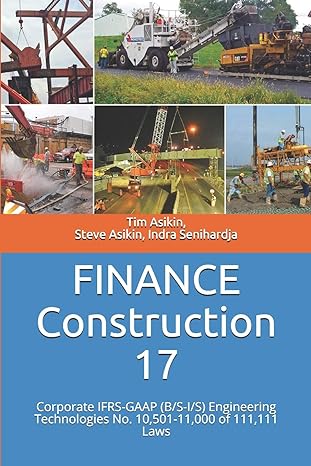Answered step by step
Verified Expert Solution
Question
1 Approved Answer
Marla recently inherited $50,000 and is considering two alternatives for investing these funds. Investment A is stock of a C corporation, expected to pay annual
Marla recently inherited $50,000 and is considering two alternatives for investing these funds. Investment A is stock of a C corporation, expected to pay annual dividends of 8 percent. Investment B is stock of an S corporation. Based on income projections, Marla's share of the S corporation's ordinary income would be approximately $10,000 per year. However, the S corporation does not expect to make cash distributions for the foreseeable future. Marla would hold either investment for three years, at which time she believes the C corporation stock could be sold for $60,000 and the S corporation stock could be sold for $90,000. Assume that the initial investment would be made in year 0, dividends on the C corporation stock would be received in years 1, 2, and 3; corporation earnings would be allocated in years 1, 2, and 3; and either investment would be sold in year 3. Assume that Marla's S corporation income would not qualify for the QBI deduction. Also assume that Marla's marginal tax rate on ordinary income is 35 percent. Use Appendix A. Required: a. Using a 4 percent discount rate, calculate the net present value of after-tax cash flows attributable to either investment. Assume a 15% rate on capital gains and dividends. b. Which investment she should choose? Answer is not complete. Complete this question by entering your answers in the tabs below. Required A Required B Using a 4 percent discount rate, calculate the net present value of after-tax cash flows attributable to either investment. Assume a 15% rate on capital gains and dividends. Use appropriate factors from the Appendix A. (Negative amounts should be indicated by a minus sign. Round intermediate calculations to the nearest whole dollar amount.) Investment A Year 0 Year 1 Year 2 Year 3 Before-tax cash flows Tax (cost) or savings After-tax cash flows NPV Investment B Year 0 Year 1 Year 2 Year 3 Before-tax cash flows Tax (cost) or savings After-tax cash flows NPV < Required A Required B >
Step by Step Solution
There are 3 Steps involved in it
Step: 1

Get Instant Access to Expert-Tailored Solutions
See step-by-step solutions with expert insights and AI powered tools for academic success
Step: 2

Step: 3

Ace Your Homework with AI
Get the answers you need in no time with our AI-driven, step-by-step assistance
Get Started


